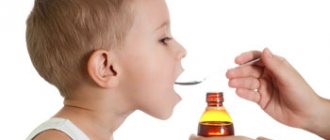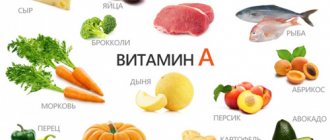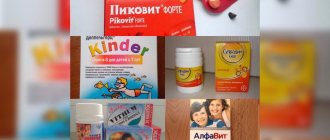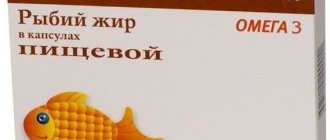Even adults can find it difficult to structure their diet in such a way as to get all the necessary vitamins and minerals through food. And for children who often suffer from poor appetite or categorically refuse to eat healthy foods, it is almost impossible to fill the daily requirement of vitamins - and then the best vitamins for children can help.
Take care not only of the child’s internal condition and health, but also of his external safety. Always know where he is, quickly communicate even in silent mode and listen to what's going on around you with the Where Are My Kids app.
Pediatricians believe that it is enough for a child to eat a varied diet so that the body receives everything it needs. But, for example, in order to consume the required amount of vitamin A, a child will need to eat 400 grams of cottage cheese, the daily requirement of vitamin C is contained in 100 grams of citrus fruits, and to meet the child’s body’s need for vital omega-3, he will have to feed his son or daughter fish and nuts. Of course, it is difficult or even impossible for parents to organize such a varied diet (for example, if a child has an allergic reaction to some healthy foods). Then good vitamins for children - prescribed by a doctor based on test results - will only be beneficial.
Content:
- Children's vitamins: what are they and does your child need them?
- Vitamins for children: features of choice
- The best vitamins for children: rating For babies under one year old
- For 1-3 years
- For preschoolers over 3 years old
- For younger students
- For teenagers
- At what age should a child be given vitamins?
Children's vitamins: what are they and does your child need them?
Manufacturers offer drugs that differ according to various criteria: taste, smell, naturalness. But basically, vitamins for children differ in two ways: composition and release form.
The composition of vitamins for children is:
- containing only one component - one-component;
- with different vitamins, usually combined with each other;
- vitamin-mineral complexes - with several vitamins and minerals in the composition.
Possible forms of release:
- drops, syrups without a pronounced taste and smell - for children who still find it difficult to swallow tablets and even chew pills;
- chewing lozenges, marmalade, often in the form of toys or cartoon characters with fruit flavors - for children of senior preschool and primary school age;
- regular tablets washed down with water - for middle and high school students.
You should not take vitamins uncontrollably, especially when it comes to children's medications. Well-known pediatrician Evgeny Komarovsky says that Russian doctors are much more likely to encounter an overdose of vitamins in young patients than with their deficiency. At the same time, according to surveys among parents of children aged one year and older, about 20% of mothers and fathers give their children vitamins constantly and only 10% of parents consult a doctor before choosing medications.
In fact, it is enough for a healthy, active child to take vitamins twice a year according to the schedule specified in the instructions for a particular drug. It is advisable that the vitamins be selected by a pediatrician, but if there is no opportunity to consult a doctor, and you are confident in the good health of your child, you can independently select an option from the rating of the best vitamins for children from manufacturers that have proven their reliability.
Parents can determine whether a child needs to take vitamins by the following signs:
- the child often catches colds;
- the child gets tired quickly, suffers from poor appetite;
- There are problems with nails, teeth, hair (fragility, fragility, loss).
It would not be a bad idea to take a course of vitamin complex during periods of active growth and speech development: at 2-3 years old, at 6-7 years old, for teenagers 11 years old and older, depending on the pace of development.
Poor memory in a child: reasons
It is worth noting that many children, or rather their parents, do not know about the child’s poor memory before he enters first grade. After all, it is at this moment that the number of tasks increases, so it is very difficult for the child to concentrate and perform at his best. There are several main reasons why a child may suffer from poor memory.
First grader
Causes of poor memory in a child:
- Wrong daily routine . The point is to activate all the brain centers, make memorization easier, there is no need to put pressure on the child and load him with constant cramming. Try to do loads by alternating. That is, alternate physical as well as mental activities. Accordingly, the best option would be to study for about an hour, then go for a walk or some kind of section where the child can do physical exercises, running, or strength training. This is the optimal routine. Pay attention to your baby's bedtime and wake time. Very often, poor memory can be caused by the fact that the child does not fall asleep well or goes to bed late. Accordingly, he does not have enough sleep, because of this he cannot concentrate and work productively during the day.
- Insufficient amounts of vitamins and minerals . The fact is that some vitamins, as well as microelements, help improve memory. Accordingly, their lack can provoke poor memorization. In this case, it is necessary to periodically give the child vitamins, and also review his diet in the direction of increasing the amount of healthy foods. Give preference to fresh fruits, vegetables, fish and meat. Don't forget dairy products. You should not give your child a variety of fast food and sweets. Although two sweets won't do anything bad. After all, fast carbohydrates in the form of sugar are an excellent source of brain nutrition. They will come in handy when the child is a little tired and will help turn the brain centers into work.
- Insufficient memory training . That is, the child is pedagogically neglected. Most often this occurs in children with poor speech. After all, the development of speech really indicates how well the child’s memory develops. If a child speaks poorly, swallows words, it is difficult for him to express his thoughts, he thinks for a long time about what he wants to say. Most likely there are some problems with memorization and memory.
- Another cause of poor memory in a child may be neurological disorders . Most often this is associated with difficult childbirth, cesarean, and prematurity of the child. Most often, such children, immediately after birth, are registered with a neurologist and given medications that stimulate brain activity. Accordingly, if you did not have any special problems during childbirth, but the child suffers from poor memory and all activities do not produce any results, it makes sense to consult a neurologist. A truly experienced specialist can prescribe medications that stimulate brain function and help your child learn.
IMPORTANT: It is best not to delay this, because over time these problems will become much more serious and it will be difficult for the student to absorb a large amount of information. After all, it is precisely from kindergarten, in the primary grades, that the child’s memory is formed in order to prepare him for further education.
At school
Vitamins for children: features of choice
When choosing vitamins, pay attention to the composition - the beneficial substances contained in the drug should be aimed at solving specific problems:
- vitamin D is especially important during the period of active growth: for the prevention of rickets in children under one year old, the formation of teeth and skeleton in infancy and adolescence;
- B vitamins are necessary if you need to strengthen the child’s nervous system: they help get rid of fatigue, drowsiness or overexcitation, stimulate brain function and improve mood in general;
- Vitamin A is needed for good vision, improving the condition of skin and teeth, strengthening the immune system;
- Vitamin C helps prevent diseases during cold season;
- vitamin E is necessary for damage to mucous membranes, problems with digestion and respiratory organs, to strengthen the muscle corset;
- iron will help maintain normal hemoglobin levels;
- magnesium will relieve fatigue and increased anxiety;
- Zinc is needed to normalize digestion, healthy hair and nails.
Pay attention to the name of the chosen drug; they have proven themselves well in Russia:
- Alphabet;
- Doppelherz;
- Pikovit;
- Vitrum;
- Complivit;
- Solgar;
- Supradin;
- ChildLife.
Take care not only of the child’s internal condition and health, but also of his external safety. Always know where he is at the moment and has been during the day (for example, if he gets to school or section alone), quickly contact him even in silent mode and listen to what is happening around using the application for caring parents “Where are my children".
What vitamins do children need for their mind and memory?
There are many microelements, and they all play their role in the human body. For example, B vitamins are responsible for the functioning of the brain and nervous system. For the human body, they are necessary for:
- normal course of metabolic processes;
- amino acid synthesis;
- improving intestinal function and skin condition;
- heart function;
- biosynthesis of neurotransmitters;
- reducing stress.
A group B nutrient is not a single compound, but several substances containing a nitrogen molecule. This group includes:
- B1 – thiamine;
- B2 – riboflavin;
- B3 – nicotinic acid;
- B9 – folic acid;
- B5 – pantothenic acid;
- B6 – pyridoxine;
- B12 – cyanocobalamin.
But the above elements are not enough for the full functioning of the brain. Vitamin C is no less important for children; it helps thiamine and folic acid to be absorbed. It protects the brain from oxidative stress and prevents tissue degeneration, so it is even recommended for patients with Alzheimer's disease.
Without vitamin C, the absorption of iron deteriorates, on which the full development of memory and thinking directly depends.
Human intelligence is also influenced by the fat-soluble element A, which protects brain cells from stress and negative factors. It has been proven that its deficiency negatively affects the development of children and can lead to problems with memory and attention. Another vital element is calcium. It is involved in many metabolic and other processes of the body, and therefore, with its deficiency, cognitive functions are significantly reduced.
The best vitamins for children: rating
The best vitamins are not just supplements, but drugs that will really help solve health problems and will not harm the child. This is why it is important to choose the best products from well-known manufacturers: they are more likely to be useful and safe (for example, they will not provoke an allergic reaction) than vitamins from unknown brands.
The table below shows the rating of vitamins for children of different ages:
Read more about the best vitamins for children (prices are indicative).
For babies under one year old:
Aquadetrim
Image: aquadetrim.com.
This is an aqueous solution of vitamin D3, adapted specifically for children under one year old. Designed for the prevention of rickets. Due to the fact that the drug is dissolved in a water base, Aquadetrim is instantly absorbed into the baby’s intestines, which helps to avoid colic and other digestive problems.
Advantages of the drug:
- strengthens the nervous and immune system;
- replenishes vitamin D3 deficiency.
Flaws:
- According to some parents, it is inconvenient to use the drug dispenser;
- If used incorrectly, an overdose or side effects may occur (nausea, vomiting, constipation, colic, weakness and disturbances in appetite and sleep).
Price : 200 rubles.
Multi-Tabs Baby
The vitamins are suitable for children under one year of age: they have no side effects, and thanks to their neutral taste, children take the product without any whims. They contain vitamins A and C, and D in small quantities (if you live in a region where there is little sun, you will most likely have to take additional vitamin D).
Advantages of the drug:
- strengthens the immune system;
- has a positive effect on the condition of bones, teeth and skin;
- small dosage and ease of administration (both during meals and before use);
- excellent tolerability and minimum contraindications.
Flaws:
- The bottle can only be stored in the refrigerator; after opening, the drug is good for only 2 months.
Price: 350 rubles.
Liquid Vitamin C ChildLife
American single-component vitamins with ascorbic acid are intended for children over 6 months. Vitamin C is necessary for children to strengthen the immune system and, according to parents, after taking dietary supplements, children actually get sick much less often.
Advantages of the drug:
- pleasant orange taste;
- natural composition;
- economical consumption.
Flaws:
- quite high price;
- an allergic reaction is possible.
Price: 850 rubles.
For 1-3 years:
Solgar Kangavites
A vitamin and mineral complex from the USA with a well-thought-out composition: with this remedy there will definitely be no vitamin deficiency in children. One tablet of Solgar Kangavites contains the daily requirement of vitamins and microelements necessary for a child. The drug is available in the form of chewable tablets.
Advantages of the drug:
- natural composition;
- completely satisfies the body’s need for nutrients;
- large volume - 120 tablets per package.
Flaws:
- high price;
- The child may not like the fact that the chewable tablet is chewed with little effort.
Price: 1000 rubles.
Alphabet Our Baby
One sachet of popular Russian vitamins contains up to 50% of the nutrients necessary for a child - a total of 11 vitamins and 5 minerals. The drug is one of the few of its kind - created on the principles of separate and joint intake of vitamins and minerals, due to which allergies are practically eliminated, and the beneficial substances themselves are absorbed better and faster.
Advantages of the drug:
- good composition;
- helps improve appetite;
- strengthens the immune system;
- has a beneficial effect on the nervous system and mental development of the baby;
- hypoallergenic;
- low calorie content;
- does not require swallowing.
Flaws:
- The contents of the sachet should be dissolved in water and taken three times a day.
Price: 500 rubles.
Syrup Pikovit
The syrup contains useful substances important for the child’s health: vitamin A, D3, C, B vitamins. It is especially suitable for nutritional disorders: poor appetite or an insufficiently varied diet.
Advantages of the drug:
- According to reviews, Pikovit really helps a child improve appetite and cope with increased fatigue;
- tastes good.
Flaws:
- a pleasant taste is achieved due to the dyes and flavors in the composition.
Price: 500 rubles.
For preschoolers over 3 years old:
Supradin Kids
Dragees contain a full range of nutrients for a growing, active child. The composition includes vitamins responsible for good vision, strengthening the immune system, and normal functioning of the nervous system. The complex is supplemented with iodine and zinc - important elements for the proper physical development of a preschooler.
Advantages of the drug:
- Children like the taste;
- good composition;
- quickly restores existing deficits;
- eye protection and general strengthening of the immune system;
- convenient regimen.
Flaws:
- contains quite a lot of sugar.
Price: 550 rubles.
Alphabet Kindergarten
Multi-colored chewable tablets with, as the manufacturer himself indicates, a competent combination of components. Alphabet Kindergarten contains vitamins and minerals necessary for the physical and mental development of a preschooler: A, E, C, group B, magnesium, calcium, zinc.
The process of taking vitamins is also interesting for children - each tablet has its own taste and color. Take the drug three times a day: morning, lunch and evening with food.
Advantages of the drug:
- promotes growth and physical development;
- improves memory;
- the tablets taste good;
- does not contain artificial colors or preservatives.
Flaws:
- You need to take the product three times a day, which is not always convenient.
Price: 300 rubles.
VitrumKids Plus
Designed to replenish the nutrients necessary for the child: they contain 12 vitamins and 10 minerals. The content of vitamins A and D in the preparation is especially high - they are enough to fully satisfy the child’s body’s need for these vitamins.
Chewable tablets come in the shape of funny teddy bears and, despite the not very pleasant taste, children willingly take the toy-like tablets.
Advantages of the drug:
- variety of vitamins and minerals;
- regular use has a good effect on the formation of teeth, strengthening the immune system, and the normal functioning of the nervous system;
- The tablets have an interesting shape for the child and are easy to chew;
- especially relevant during periods of intensive growth;
- does not need to be washed down with water or swallowed;
- compensates for most of the necessary substances for the child’s body;
- One pack is enough for one course.
Flaws:
- not very pleasant to the taste, contain dyes and flavors. Low content of vitamin C. If the dosage is violated, an allergic reaction is possible.
Price: 500 rubles.
For younger students:
Alphabet Schoolboy
The complex, containing 11 vitamins and 7 minerals, is designed to make it easier for students to cope with mental and emotional stress.
The drug is taken three times a day - each tablet performs its own function: some tablets replenish iron deficiency, others contribute to the full development of the student, and others strengthen bones and teeth.
Advantages of the drug:
- high efficiency due to separate administration of tablets;
- good composition.
Flaws:
- contains dyes and flavors;
- One package is not enough for a full course.
Price: 350 rubles.
Univit Kids with Omega-3 and Choline
The high content of B vitamins makes the drug an excellent assistant in adapting to new conditions. Lozenges in the shape of dolphins can improve memory and increase a child’s performance.
Advantages of the drug:
- has a good effect on the nervous system and mental development;
- attractive shape for children;
- reliable manufacturer (Germany);
- strengthening the immune system.
Flaws:
- not very pleasant taste;
- tablets are harsh:
- contraindicated in diabetes.
Price: 600 rubles.
Doppelhertz Kinder
Chewable lozenges with useful substances that schoolchildren need: 10 vitamins, zinc, choline and iodine. Designed for the full physical and intellectual development of the student.
Advantages of the drug:
- good composition;
- suitable for children with excess weight or diabetes due to the absence of artificial additives and low energy value;
- high efficiency and quick results.
Flaws:
- cannot always be found in pharmacies.
Price: 500 rubles.
For teenagers:
Complivit Active
Fruit-flavored dragees are created specifically to support health during increased mental and physical stress. It contains 12 vitamins and 10 minerals that help improve vision, normalize the functioning of the nervous system, strengthen bone tissue, and cleanse the skin.
Advantages of the drug:
- thoughtful composition;
- compensates for the deficiency of nutrients due to an unbalanced diet;
- simple form of administration and affordable price.
Flaws:
- artificial colors in the composition.
Price: 200 rubles.
Pikovit Forte
The tablets contain B vitamins, vitamins A, C, D and E. They work comprehensively: they help a teenager get rid of fatigue, stimulate mental activity, support immunity and reduce anxiety typical of adolescence.
Advantages of the drug:
- significantly improves the emotional and physical state of a senior student, even with active sports;
- take only 1 time per day.
Flaws:
- contains artificial flavors;
- takes a long time to dissolve.
Price: 380 rubles.
Multi-Tabs Junior
Chewable tablets with a variety of fruity and sweet flavors contain the most essential substances for a rapidly growing body. They help eliminate the negative consequences of poor nutrition and successfully cope with a high academic load.
Advantages of the drug:
- high efficiency;
- pleasant taste.
Flaws:
- artificial flavoring additives in the composition.
Price: 350 rubles.
Medicines to improve attention in children and adolescents
Children and adolescents require increased concentration during the learning process, and therefore are more susceptible to mental overload. Nootropic drugs improve blood circulation and metabolism in brain cells, activate thought processes and promote good study.
Modern medicine offers a large number of means to stimulate the nervous system of schoolchildren. Medicines to improve brain activity are available without a prescription, but they must be taken strictly as prescribed by a neurologist or psychiatrist. Their uncontrolled use, especially in children, can be dangerous.
Basic drugs to improve memory and attention:
- Glycine is a nootropic drug that increases performance, normalizes sleep, has a sedative effect, improves mental abilities, and activates protective inhibition processes in the central nervous system. Release form: tablets that dissolve under the tongue until completely dissolved.
- Piracetam - has a positive effect on metabolic processes in the brain, promotes better assimilation of educational material. But if there is a history of individual intolerance or renal failure, the drug is contraindicated. Release form: tablets and capsules.
- Biotredin. The drug contains vitamin B6 and threonine - substances that have a positive effect on the nervous system. The product activates the cognitive functions of the brain, has a calming effect, and helps improve memory and attention in adolescents. Release form: tablets.
- Phenibut is a nootropic drug that stimulates blood flow to the brain, reducing the tone of its blood vessels. When using this medicine as prescribed by a doctor, mental performance significantly improves, memory and the ability to remember large amounts of information are activated. The product is available in tablet form.
- Aminalon is a gamma-aminobutyric acid preparation. Restores metabolism in the brain, improves glucose processing, and removes toxins. Indicated for disorders of the nervous system, to activate mental activity. Release date: tablets.
- Pantogam is a nootropic drug containing gamma-aminobutyric acid as an active ingredient. Indicated for psycho-emotional overload, attention and memory disorders, to activate intellectual activity, and relieve nervous tension. Release form: syrup, tablets and capsules.
- Tenoten is a homeopathic medicine that improves the nutrition of children's brain cells, accelerates the maturation of the child's nervous system, and promotes the activation of brain processes. Available in tablet form.
- Noben is a product based on coenzyme Q10. As a result of intake, the concentration of this substance in brain cells increases, memory and the processes of remembering information are activated. Release form: capsules.
- Bilobil (analogs - Tanakan, Biloba and others) is a medicine based on an extract of the ginkgo biloba plant. Normalizes the tone of small vessels in the brain, stimulates the nervous system, and has a slight calming effect. The product is available in tablet form.
- Intellan - relieves nervous tension, effective for mental overload. Release form: syrup and tablets.
- Phezam is indicated for disorders of mental function, decreased memory and concentration, as well as retardation in intellectual development. The product eliminates irritability and promotes better learning. Release form: capsules.
It must be remembered that drug treatment for brain disorders alone will not be enough. You can develop intellectual functions by any available means - memorization, reading, various educational games. In addition, the child needs the care and support of his parents. Only if all these conditions are met can excellent results be achieved in a fairly short period of time.
Popular questions from parents about children's vitamins
Questions about vitamins that parents ask especially often:
At what age should a child be given vitamins?
Vitamins in the form of drops can be given to a baby from the first days of life as prescribed by a doctor.
Is the natural composition of vitamins important?
It is desirable that the composition of the chosen product be as natural as possible. In the middle price category, semi-synthetic vitamins predominate - they are well absorbed and rarely provoke allergies. The body absorbs completely natural vitamins perfectly, but such preparations are expensive and difficult to find on sale. Fully synthetic drugs have a low price, but they are absorbed by the body for a long time.
Does my child need to take vitamin and mineral complexes on a regular basis?
No, it is enough to take vitamins in a course according to the instructions for the drug, no more than two courses a year. It is best to take vitamins during the off-season periods: spring and autumn.
What vitamins are especially important for a child's development?
Most often, children have a deficiency of vitamins C and group B - it is desirable that these vitamins be part of the chosen product. Vitamins A, D, E can be obtained in sufficient quantities by simply adjusting the child’s diet.
Foods rich in vitamins for the brain and memory
To prevent vitamin deficiency and develop memory in children, it is important to create a balanced menu. Products that improve memory and brain function have long been known:
- red fatty fish (salmon, salmon);
- nuts;
- cocoa and dark chocolate;
- coffee;
- melon;
- eggs.
- broccoli;
- olive and linseed oil;
- avocado.
We recommend reading: Useful properties and contraindications of avocados
Brain function and memory are improved by foods containing B vitamins, unsaturated fatty acids or Omega-3. Unfortunately, usually fish and fresh fruits and vegetables are not cheap, so they do not appear in the diet as often as they should. And not all nutrients obtained from food are absorbed. For example, in order to compensate for vitamin E deficiency, you need to eat at least a kilogram of walnuts.










